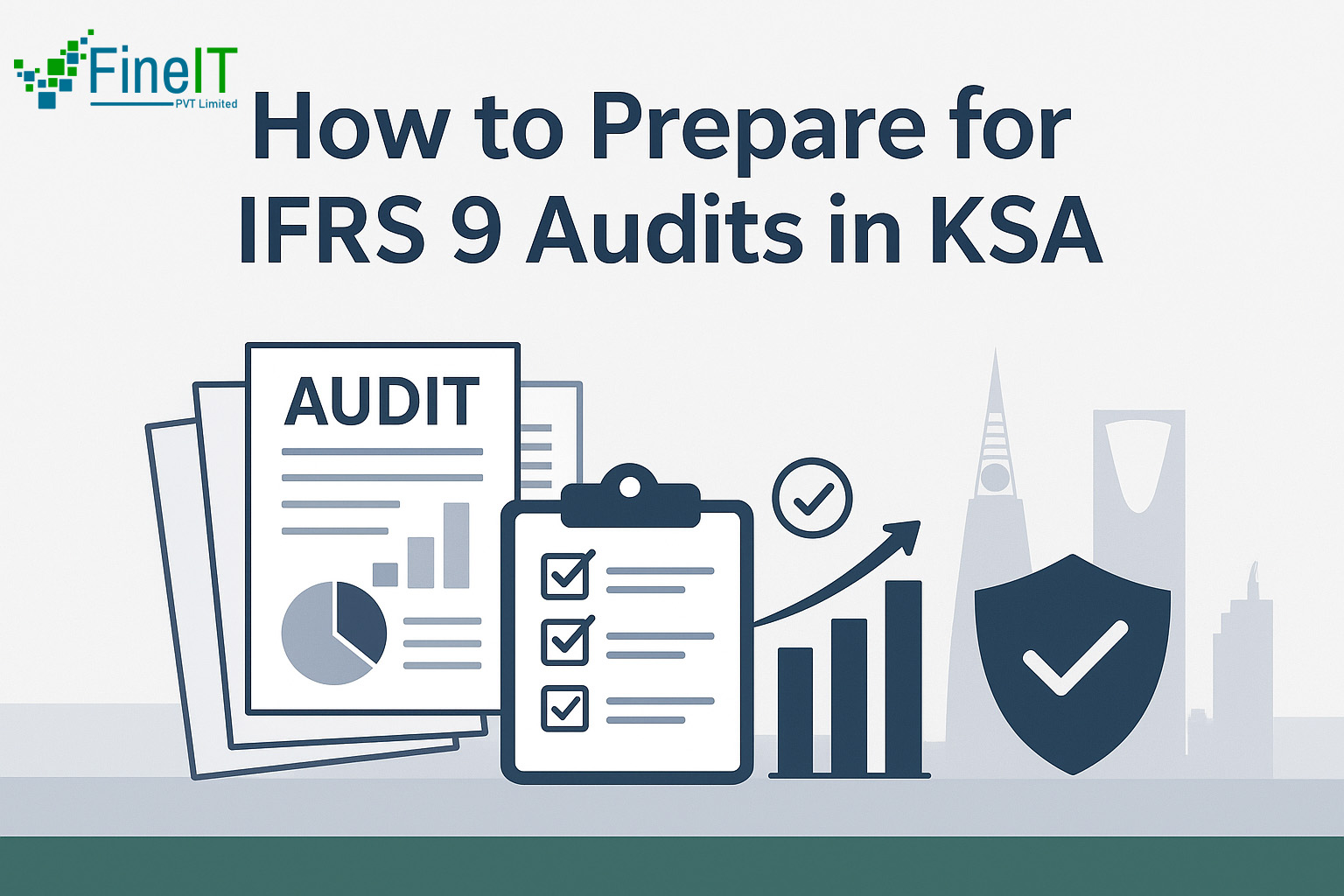The introduction of IFRS 9 – Financial Instruments has transformed how organizations in Saudi Arabia recognize, measure, and report financial assets, liabilities, and credit risk. For banks, financial institutions, and corporates in the Kingdom, preparing for an IFRS 9 audit requires not only compliance with the accounting standard but also alignment with regulatory expectations set by the Saudi Central Bank (SAMA) and other authorities.
This article explains the key steps organizations should take to ensure a smooth and effective IFRS 9 audit in KSA.
1. Understand IFRS 9 Requirements in the KSA Context
IFRS 9 is built on three pillars:
- Classification and measurement of financial instruments
- Expected Credit Loss (ECL) model for impairment
- Hedge accounting
In Saudi Arabia, the application of IFRS 9 is mandatory for banks and many corporates, with regulators like SAMA requiring detailed disclosures and robust risk management frameworks. Before the audit, companies should review:
- How financial instruments are classified (amortized cost, FVOCI, FVTPL)
- How impairment is calculated under the ECL model
- Whether hedge accounting is applied correctly
2. Strengthen Data Quality and Governance
Auditors in KSA place significant emphasis on the accuracy and completeness of data used in IFRS 9 calculations. Organizations should ensure:
- Reliable historical data for credit risk modeling
- Clear governance policies for data validation
- Documentation of assumptions, scenarios, and overlays
Strong data governance frameworks not only help with compliance but also improve audit efficiency.
3. Review ECL Models and Assumptions
The Expected Credit Loss model is often the most challenging part of IFRS 9 audits. In Saudi Arabia, auditors closely examine:
- Model methodology (PD, LGD, EAD calculations)
- Macroeconomic assumptions and forward-looking scenarios
- Staging criteria (Stage 1, Stage 2, Stage 3)
- Management overlays and judgmental adjustments
To prepare, companies should conduct independent model validations and maintain detailed documentation to justify assumptions.
4. Align with SAMA and Regulatory Expectations
Since SAMA plays a central role in supervising banks and financial institutions in KSA, audit preparation should include:
- Reviewing SAMA circulars and guidance on IFRS 9
- Ensuring disclosures meet regulatory reporting requirements
- Engaging with internal compliance and risk teams early
Regulatory alignment reduces audit findings and enhances confidence in financial reporting.
5. Strengthen Internal Controls and Documentation
Auditors in KSA will review not just the numbers but also the processes behind them. Key actions include:
- Documenting policies, methodologies, and governance structures
- Maintaining a clear audit trail of decisions and approvals
- Testing internal controls over IFRS 9 processes
Well-documented internal controls give auditors assurance and reduce the likelihood of audit adjustments.
6. Conduct a Pre-Audit Assessment
Before the external audit, organizations should run an internal pre-audit review. This may include:
- Engaging internal audit or external consultants
- Testing IFRS 9 models under different scenarios
- Reviewing financial disclosures for compliance with IFRS standards
A proactive pre-audit assessment helps identify gaps early and prevents surprises during the audit.
7. Collaborate with Auditors Early
Finally, successful IFRS 9 audits in KSA depend on open communication with auditors. Companies should:
- Share methodologies and data sources in advance
- Discuss key judgments and overlays
- Address auditor feedback proactively
Early collaboration leads to smoother audits and strengthens relationships with regulators and stakeholders.
Final Thoughts
Preparing for an IFRS 9 in KSA requires more than just technical accounting—it demands data integrity, strong governance, regulatory alignment, and proactive planning. By focusing on ECL models, documentation, internal controls, and collaboration with auditors, organizations can not only achieve compliance but also enhance the credibility of their financial reporting.
For Saudi businesses, mastering IFRS 9 audit preparation is not just a regulatory obligation—it’s a competitive advantage in building trust with investors, regulators, and the wider market.
Muzammal Rahim Khan is the CEO and Co-Founder of FineIT, bringing over 15 years of expertise in software development, implementation, and technical consulting across global markets including the U.S., U.K., Europe, Africa, and Asia. He has led the design and delivery of enterprise-grade solutions that modernize compliance, risk management, and financial reporting for banks and financial institutions. Under his leadership, FineIT has built flagship platforms such as Estimator9 (IFRS 9) and ContractHive (IFRS 16), empowering clients with automation, accuracy, and audit-ready confidence. Muzammal combines deep technical knowledge with strategic vision, driving innovation that bridges regulatory requirements with practical, scalable technology. His focus remains on building resilient, future-ready solutions that strengthen trust and efficiency in financial services.
